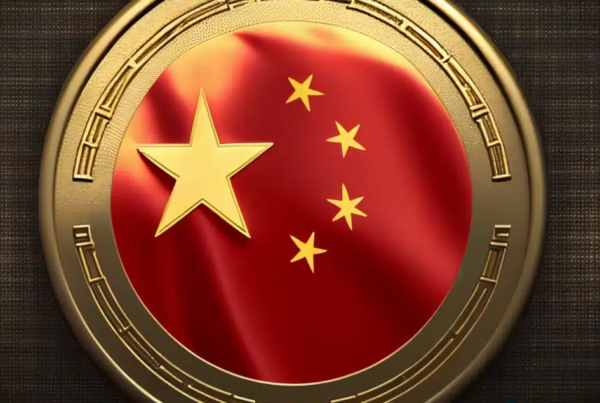A rapidly growing number of football (soccer) clubs the world over are launching non-fungible token (NFT) ranges, club tokens, fan tokens and more.
Scores of players – some legends of the past like David Beckham and Andreas Iniesta, others contemporary superstars like Lionel Messi – are launching tokens, promoting crypto firms, or advertising crypto as a way to spin money.
Some dismiss this as a gimmick, but others are more positive about creating a brand-new model for fund-raising and fan involvement. With Crypto.com set to become one of the main sponsors of football’s biggest showcase – the World Cup – later this year, the crypto-football link is about to come under more scrutiny than ever.
How is crypto actually being used in football?
And will the increasingly tight relationship between digital tokens and the world’s favorite sport prove a hit – or will it turn out to be an own goal for the industry…and the beautiful game?
Sponsorship
This is possibly the most obvious connection between football and crypto. As a sport that attracts billion of USD per year in the betting markets, it makes sense that big crypto exchanges – who rely on risk-loving customers for much of their client base – would also look for a way into the picture.
As such, you can now pretty much name it – competitions, individual players, huge global teams – when it comes to football, crypto firms are keen to have their names plastered all over the lot.
Even arguably the biggest club of the lot – FC Barcelona – has had its share of crypto sponsor suitors. Not every club in the world wants a crypto exchange on the front of its matchday shirts, but it is now becoming increasingly hard to find a major club without some kind of crypto sponsorship deal in place, either major or minor.
Player payment and transfers
Transferring players is a process that looks like it belongs in the 1980s. It’s a sector of football still mired in fax machines, scanned documents, deal sheets and super-clunky bank transactions. In the fast-moving world of global football, using crypto to buy and sell players would seem to make a lot more sense. The immutable nature of blockchain protocols would help with transparency and auditing, while crypto transactions are faster and require no banking intermediaries.
Smart contracts could also be used to activate clauses in players’ contracts – performance bonuses or additional appearance fees, for instance. Some, like Messi, have even received payments in crypto.
Earlier this year month, one of Mexico’s leading women’s football clubs, Tigres Femenil, sold a midfielder named Stefany Ferrer to an American club named Angel City in a crypto-only deal. The American club’s owners include celebrities like Natalie Portman, Eva Longoria, Mia Hamm, Becky G and Serena Williams.
Other firms have even sought to pay for their own sponsorship deals in crypto, which also makes sense: It’s easy and it makes headlines.
Some may argue that crypto transfers are still a gimmick or an oddity, but their speed and efficiency could ensure that one day they become an everyday occurrence.
Fan outreach & voting rights
Fan tokens are also becoming commonplace in modern football. Clubs tout them as a way to connect to their players and former legends, but the larger coins are traded on big crypto exchanges – some of them even enjoy relatively large market caps.
Although these currently only offer fans the right to vote on relatively menial matters such as the color of a club’s next uniform or where a pre-season friendly match should be played, even this small slice of fan power is better than nothing at all.
We are still in the early days of fan tokens. Perhaps the next generation of football fan coins – perhaps if they were issued by a club itself rather than an affiliate partner – will grant fans fractional ownership rights over stadiums and training grounds.
In that kind of world, fans could one day wield the collective power to, for instance, vote on the appointment of a new coach, chairperson or manager.
NFTs and collectibles
Collectibles have been a thing almost since the modern game of football was founded. From matchday programs and ticket stubs to scarves and replica uniforms, football fans have prized ownership.
This started to really take off in the late 1970s and early 1980s, when sticker albums became a thing. In the lead-up to World Cups, playgrounds around the world were full of children swapping rare stickers for the two or three cards they needed to complete their albums.
In the digital age, then, it seems that NFTs and football make a natural match. While people in many walks of life balk at the idea of paying hundreds of dollars worth of Ethereum (ETH) for a .jpeg or .gif, football fans get it. Rarity equals value – both sentimental if you are a fan, and monetary if you have an eye for a trade.
Clubs and players will continue milking the NFT for as long as there’s demand – we might as well get used to it.
Grassroots sports club funding in Japan
Beyond the worlds of big business and speculation, crypto is also finding a role in much smaller footballing endeavors – such as crowdfunding. You might think that only mega-clubs like Paris Saint-Germain and its PSG coin, as well as Barcelona and AC Milan could realistically put their names to fan tokens. But in Japan, that isn’t the case.
Using platforms like Japan’s Financie, which now even organizes its own cup competitions, newer clubs with tens, not thousands, of Japanese fans and local investors have been funding the very basics of building a local football team with fan tokens. New stadiums are being built, many of which feature token holder-only sections.
The lower leagues of Japanese football could be the starting point for a crypto-football revolution.
Elements of Controversy
There is no guarantee that football and crypto will prove successful long-term teammates. In Spain, one of the most notable football hubs in the world, regulators have voiced their concerns about advertising unregulated financial products.
The advertising commission has warned a number of teams about their relationships with crypto firms. And in 2020, AS reported that the regulatory National Securities Market Commission (CNMV) threatened that it might “put restrictions on La Liga club advertising” – warning that a “toxic” relationship between football clubs and crypto was developing. Similar rumbling have been expressed in the most lucrative league of all: England’s EPL.
Regulators are yet to really get started with policing the sector – but conventional gambling firms that once flocked to football sponsorship have already had their fingers burned.
Crypto and Football: An Own Goal or a Winning Team?
The truth is crypto and the footballing world are still getting to know each another.
It’s far too early to predict if this team-play will be a success in the long term. But one thing is certain. As the World Cup will doubtlessly prove later this year, crypto has already radically changed the footballing financial picture – both on the field and off the pitch.
CURATED FROM:
“Crypto in Football – What’s It Being Used for and What’s IT Good for?” Market News & Forecasts, Charts, Broker Reviews, https://www.fxempire.com/forecasts/article/crypto-in-football-whats-it-being-used-for-and-whats-it-good-for-957054






